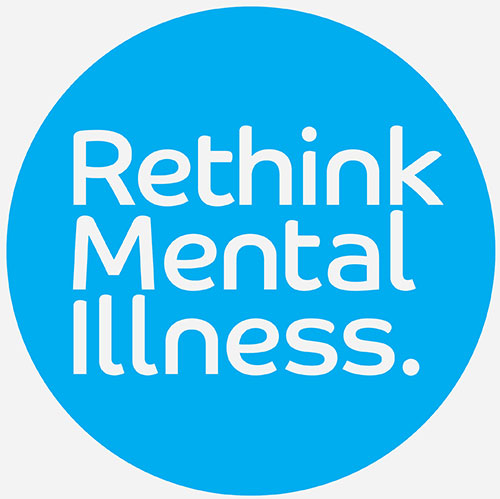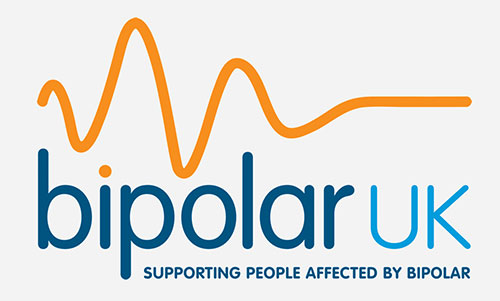



The government has recently released a series of new welfare and employment policies. This includes the reforms to the Work Capability Assessment (WCA), the Back to Work Plan, alongside other changes announced in the 2023 Autumn Statement. We strongly oppose the government’s approach to getting people back into work and the potential loss of financial support for many people living with mental illness who rely on benefits. We know that these announcements have been distressing and unclear for many people, so Julia (pictured) from our Policy Team has written this blog to explain what will happen, what might happen, and some of our hopes for the future.
There are some complicated words and acronyms throughout this blog. Here’s an explainer of what some of those terms mean.
The WCA is a test that the DWP uses to assess people’s capability for work or work-related activities. People are tested on whether they can complete certain activities and need specific amount of points for different outcomes.
Fit for Work (FFW) is one of the three outcomes to a WCA. It means you get no entitlement to extra amounts of Universal Credit and/or Employment Support Allowance, and you need to look for work.
Limited Capability for Work (LCW) is one of the three outcomes to a WCA. It means you cannot work now, but are deemed as able to engage with work preparation (i.e. cv writing, courses, etc). You need to complete “Work prep” in order to receive your UC or ESA in full, and if you do not fulfill it, then you can be sanctioned. People in this group also do not receive the extra amounts of UC/ESA.
Limited Capability for Work Related Activities (LCWRA) is one of the outcomes of the WCA. It means you do not have to look for work nor prepare for work, and you receive a higher rate of UC/ESA.
This activity assesses the ability to move around and is satisfied if a claimant cannot move more than 50 metres safely and repeatedly on level ground without needing to stop, taking account of the use of aids such as a manual wheelchair, crutches or walking stick which are normally or could reasonably be used.
This activity assesses the ability to travel without support from another person as a result of disorientation; or of agoraphobia causing fear of travelling unaccompanied by another person. Specified places with which a person is familiar include locations in their local area such as the GP surgery, dentist, bank, post office, local shops etc.
A claimant can be treated as having limited capability for work-related activity (LCWRA) if, by reason of their health condition or disability, there would be a substantial risk to the health of the claimant or others were the claimant found not to have LCWRA. The provision can only come into play if a claimant has been found to have LCW but then fails to satisfy any of the LCWRA descriptors.
Claimants receive their benefit payments on the condition that they fulfil their claimant commitments. Claimant commitments are rules or actions that DWP expect claimants to fulfil, which can be anything from seeing their work coach x times per week to applying for jobs. A sanction is an action by the DWP, when they reduce or stop someone’s benefit payment for a period of time. People get sanctioned when they do not fulfil their claimant commitments. An open-ended benefit sanction is a sanction that applies for as long as the claimant does not fulfil their claimant commitment (i.e., attending specific meetings or interviews).
Standard allowance is determined by the certain characteristics of the household. Single claimants or joint claimants, under or over the age of 25, will receive different amounts but they are the same for each group.
The LCWRA element is an additional money that specific benefit claimants receive, when they get found as having LCWRA after their WCA.
Work Capability Assessment
To begin with, the Department for Work and Pensions (DWP) have decided to reform specific aspects of the Work Capability Assessment (WCA). They have justified the changes by saying that certain barriers to work have diminished since homeworking has become more common. However, homeworking is not as common or accessible as they have implied that it is, and homeworking still poses barriers for many people living with severe mental illness. If someone is too unwell for work in general, then many will likely be too unwell for homeworking as well. People who are seriously unwell need holistic support that includes a compassionate benefits system – not unnecessary pressure to work.
Here are the key points to know about the changes to the WCA and please note that any changes to the WCA assessment itself will not happen before 2025.
While we oppose some changes and support some in principle, we know that the WCA is fundamentally flawed and should not be partly reformed. The whole approach to assessing work capability needs to be fully re-designed and all reforms should be led by the voice of lived experience.
The government is focussed on getting people back into work, particularly people living with long-term sickness or disability. Here are some of the main points from the plan.
Some people cannot work because they are seriously unwell and should be able to rely on our benefits system. There are also some people who feel well enough for work and want to work, and they should be offered the best quality support that will help them reach their goal. This is why we were happy to hear that Individual Placement and Support (IPS) services will be expanded to support an additional 100,000 people.
IPS is a helpful employment support service scheme that helps people living with severe mental illness find quality, paid work. The service can be provided by local authorities, the NHS, charities like us, and others. It is completely voluntary, meaning you do not have to use the service if you don’t want to. However, if you want some personalised support, then IPS can help you find a job that best suits you and that you would enjoy. They also provide support to service-users once they are in work, as well as offer support to the employer to ensure that they know how to best support their new employee.
We feel that amongst the difficult news regarding the benefits system, this was one of the announcements that provided some hope. While it does not compensate for the stress caused by the changes in the benefits system, it is good to hear that more people will have access to this type of service if they are interested and ready.
We were also relieved to hear that working-age benefits will increase by 6.7% starting on 8 April 2024, to be in line with inflation. We hope that this can provide some relief during the cost-of-living crisis. The table below shows how much benefits like UC and Personal Independence Payment will be starting in April 2024. While we were relieved to hear that benefits are going to increase, we know that it won’t be enough to help many people pay for their essentials like food, utilities, and housing. This is why the government should introduce an Essentials Guarantee in our benefits system, which would ensure that benefit levels are continuously sufficient to help people to pay for their essentials. We will continue to fight for this and support the Joseph Rowntree Foundation and The Trussell Trust Joint Campaign – Guarantee Our Essentials.
| Household | Current monthly standard allowance | New monthly standard allowance |
| Single and under 25 | £292.11 | £311.68 |
| Single and 25 or over | £368.74 | £393.46 |
| Live with your partner and both under 25 | £458.51 (for you both) | £489.23 (for you both) |
| Live with your partner and either of you are 25 or over | £578.82 (for you both) | £617.60 (for you both) |
| Current monthly rate | New monthly standard allowance |
| £390.06 | £416.19 |
| Daily Living Part | Current weekly rate | New weekly rate |
| Lower weekly rate | £68.10 | £72.66 |
| Higher weekly rate | £101.75 | £108.57 |
| Mobility part | Current weekly rate | New weekly rate |
| Lower weekly rate | £26.90 | £28.70 |
| Higher weekly rate | £71.00 | £75.76 |
We understand that these changes can be complex and upsetting. Please remember that many of the changes won’t be immediate and we will continue to work towards a better and more compassionate benefits system. If you feel need further information or support regarding money and benefits, please check out our Mental Health and Money Advice service.
Return to Action for Mental Health homepage
You are here : Home » Rethink News – Welfare and employment announcements: what’s changed?



